Left Menu
beyond banking
Left menu for footer page
Targeting the Hardcore Poor Programme
8
States
5,904
Villages
50,500
Households
44,344
Women Graduated
This is a unique programme designed for the poorest of the poor. Grants (in the form of free assets, not cash) are offered to destitute women. They start generating income out of this asset and are subsequently able to support themselves by independently making a living. It is seen that within 18-24 months of this grant intervention, these extremely poor beneficiaries start to graduate to a basic income-earning capability, uplifting themselves from extreme poverty and connecting with mainstream society. This programme follows a 360-degree approach. Besides providing free assets, consistent counselling and mentoring support is also extended. A weekly subsistence allowance is also given to these women to help them meet their daily basic expenses until the assets begin to yield returns. Financial literacy is imparted so that they can make informed financial decisions. Education on socially relevant issues is also offered to increase their awareness and help them live better lives. A critical component of this programme is Ati Daridra Sahayak Committee, which brings together influencers in villages to serve as guardians of these beneficiaries even beyond the programme period of 24 months. Overall confidence-building is done so that they do not fall into the poverty trap again. Over the years, it has been seen that there has been a positive impact of this intervention in the lives of many. There are certain beneficiaries who have been able to move away from a stage in life where they were even contemplating suicide for want of money to a stage where they earn thousands of rupees as monthly income, have a healthy life, and meet all the basic needs of their families.
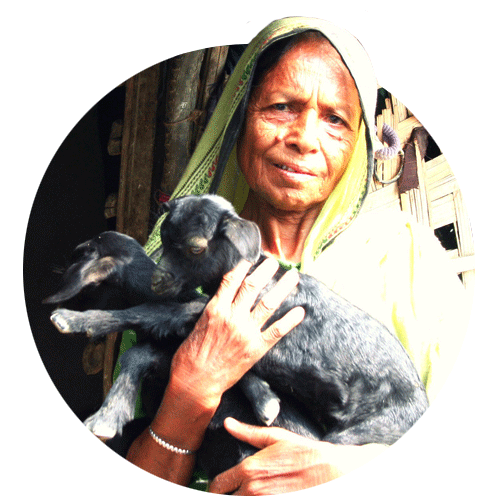
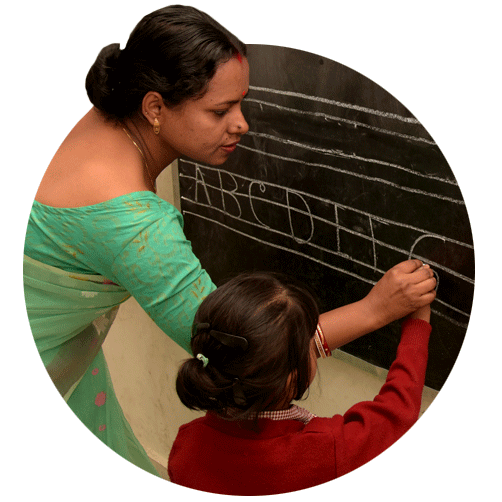
Education Programme
5
States
1,484
Villages
1,14,391
Students
3,617
Learning Centres
This programme encourages a diverse age group of underprivileged children to begin and sustain academics in a congenial environment. A unique, low-cost, innovative model has been adopted to ensure that these children receive quality education. Education centres have been set up in rural areas. These aim to reach out to the non-school-going and dropout children with special focus on the girls, from economically constrained families. These free schools, known as Bandhan Education Centres, provide complimentary school kits and focus on classroom learning, attendance, and extra-curricular activities. Further, the programme has also set up low-cost formal schools, called Bandhan Academy, and another set of affrodable formal schools, called The Bandhan School, that provide holistic development for children, focussing on overall personality development with a focus on academic excellence.
Health Programme
5
States
6,070
Villages
3,47,163
Women Trained For Safe Motherhood Practices
7,635
Health Volunteers
This programme aims to increase health awareness in order to reduce healthcare expenditure of underprivileged families and thus plug income leakage. It focuses on children under 5 years of age, pregnant women, lactating mothers, and adolescent girls, educating them on safe motherhood, child nutrition, and sanitation issues. Under this initiative, health volunteers are developed by selecting interested women from the villages and providing them adequate training. These health volunteers called Swastha Sahayikas (SS) then work in the villages to impart health education through regular health forums. The programme also includes linkage and referral services, distribution of health kits, setting up of water treatment plants to provide safe drinking water, encouraging kitchen gardening, providing basic health care service through polyclinics and rural health centres, and improving water and sanitation facilities, among others.
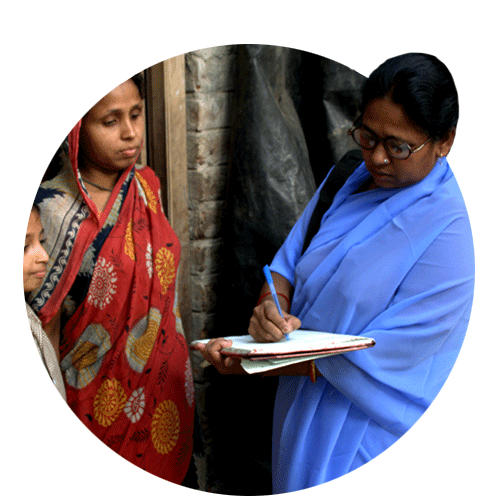
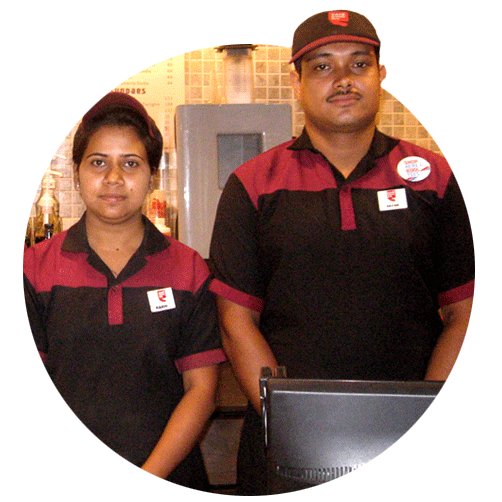
Employing the Unemployed Programme
5
States
12
Districts
11,402
Candidates Placed
18
Bandhan Skill Development Centres (BSDC)
This programme is aimed at addressing the issue of unemployment in India. Vocational centres known as Bandhan Skill Development Centres (BSDC) are set up which provide training to unemployed youth. They can choose from an array of domains such as sales, hospitality, ITes-BPO, computerised accounting, refrigerator and air conditioner repair, etc. After successful completion of these skill development courses, candidates either explore entrepreneurial opportunities or get placed with reputed companies.
Financial Literacy Programme
2
States
12
Districts
2,174
Villages
4,94,749
Women Trained
This programme is aimed at deepening financial inclusion through financial literacy in rural communities. In the crusade to ensure holistic development of people and communities, financial literacy and inclusion assist them to move from sustenance to a sustainable growth path. Accordingly, this initiative encourages participants to become financially aware and gain financial confidence. The objective is to increase awareness among rural and disadvantaged women about financial matters, empowering them to plan their personal economies. They are also taught to access varied banking services, including insurance and pension schemes.
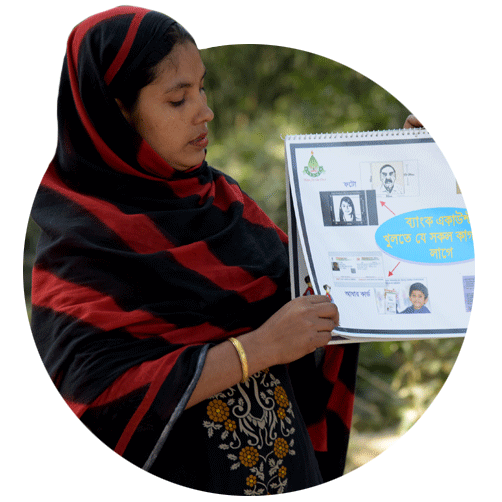

Sustainable Livelihoods Programme
1
States
4
Districts
2
Incubation Centres
138
Businesses Incubated
A programme was piloted for incubating young and talented entrepreneurs from economically weaker sections. The aim is to help these entrepreneurs in setting up their own start-ups so that instead of becoming employment seekers they become employment givers.
Bandhan-Konnagar selected 51 bright entrepreneurs (including 17 females) out of 113 candidates to incubate their enterprises.Of the 51 enterprises, 20 have been registered with MSME and 16 are DIC approved and 16 enterprises have also been linked to Financial Institutions for credit line.
Climate Action Programme
7
States
41
Districts
4,17,525
Saplings planted
555.50
Acres of area planted under Afforestation/Agroforestry
The Goal 13 of the United Nation’s Sustainable Development Goal (SDG) calls for urgent action to combat climate change and its impacts. It is also intrinsically linked to the rest of the 16 SDGs 2030 Agenda. To address the climate change, India has adopted the Paris Accord to limit the global temperature rise to well below 2 degrees Celsius.
It is a well-established fact that the climate change is linked to Green House Gas (GHG) emissions and reducing atmospheric carbon through emission reduction and carbon sequestration can help limit the rise of global temperature.

Support from government and donors
Besides funding support from Bandhan Bank, these entities enjoy the trust and support of the state governments, corporates and renowned national and international donor agencies. It is because of the encouragement and faith that these organisations repose that it is able to continue their development programmes.
List of CSR Projects | Impact Assessment Study for CSR Initiatives
This website uses cookies. By continuing to browse this website, you agree to the use of cookies. To view our cookie policy, click here.


















